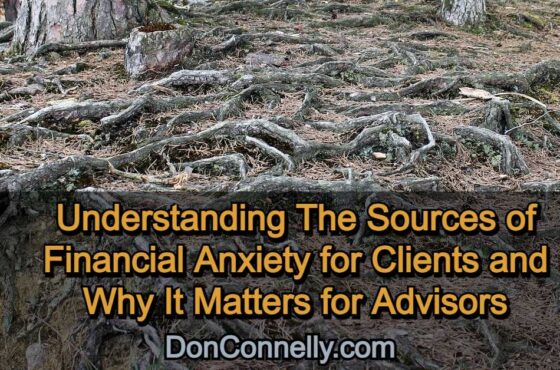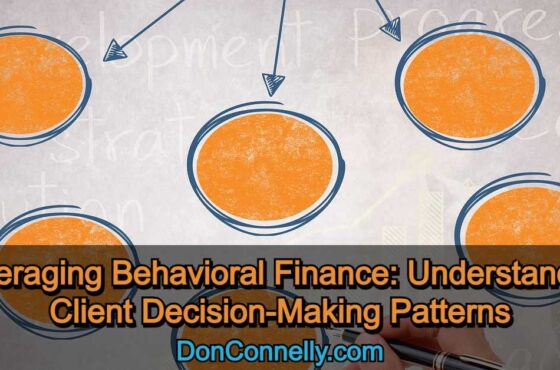How to Prepare Your Clients for The Next Market Correction
 The Natixis Investment Managers 2018 Global Financial Professionals Survey revealed that 57% of advisors believe investors are unprepared for a downturn. This illustrates how difficult it is to convey the nature of turbulence to clients – and that volatility is an unavoidable part of the investment process.
The Natixis Investment Managers 2018 Global Financial Professionals Survey revealed that 57% of advisors believe investors are unprepared for a downturn. This illustrates how difficult it is to convey the nature of turbulence to clients – and that volatility is an unavoidable part of the investment process.
Take the lead – prepare and educate your clients on the nature of market volatility. Then it will be far easier to counter their anxiety when the next market correction comes. Here are 5 things you can do right away.
#1. Explain market volatility in terms clients can understand
Clients have an anxious approach to volatility, even when they rationally understand it’s the nature of markets to rise and fall. As their advisor you need to connect with the right, emotional part of the brain to allay their fears. Use analogies and stories to get your messages across.
Keep reminding clients of their long-term goals. Help them envision the future by painting it in bold colors and with intense detail. If clients stay enthusiastic about their goals, they’re more likely to stick with the plan through good times and bad.
#2. Continuously reinforce your clients’ trust in you
If clients are going to stick with their plan over the long term, they need to trust that you will see them through the bad times. They need to know you are reliable and will be there for them if they have questions.
Always deliver 5-star service, demonstrate passion and commitment, and demonstrate your integrity and leadership skills. If clients feel that they can trust you and that they are your number one priority, they’re far more likely to follow your lead and stick with their investments when the next market correction happens.
#3. Convince clients not to rely on the evening stock market report
The media is overflowing with negative news about the markets, and this can cause clients to check and re-check their investments obsessively.
Just about every day brings a new warning of a stock market crash, but the truth is nobody can time the markets. Staying liquid to avoid this constant ‘impending doom’ means missing out on steady overall gains.
#4. Tell clients the “Litany of Disaster” story
This is a story that shows how, despite regular setbacks, the stock market has always come back to set a new high. It’s designed to get clients to focus on the destination, not the journey.
9/11 was an unprecedented event in history, but it’s not a unique event. There have been many prior occasions when America suffered greatly – how about John Kennedy’s assassination on November 22nd, 1963 or Pearl Harbor in 1941? Bad things happen all the time giving every generation a reason not to invest.
Investors tend to have a ‘recency bias’ where too much importance is given to events that happened recently. Your job is to encourage long-term thinking, get clients to ignore the headlines and take a look at the big picture. The saying ‘the DOW climbs a wall of worry’ is as true today as it was 50, 60 or 70 years ago.
#5. Share with clients why Warren Buffet’s favorite holding period is ‘forever’
As reported on Investopedia, get clients to follow Warren Buffet’s advice: A successful investor doesn’t focus on being with or against the crowd. In good times and bad he stays focused on his goals – he rarely changes his long-term investing strategy no matter what the market does.
As their financial advisor you oversee your clients’ financial security, so you need to ensure they stay committed to staying on track no matter what. This means you must prepare them for the next market correction and know how you’re going to deal with their reaction to a market downturn.
Watch this 3-minute video to learn how our Bear Market Tool Kit will help you prepare yourself and expertly guide your clients through bear or volatile markets and win new business during turmoil.
Gain access to the Bear Market Tool Kit today for $149!
6 videos. 4 audios. 11 pdf downloads and links to various resources. All the tools you need to expertly guide prospective and current clients through bear or volatile markets.



